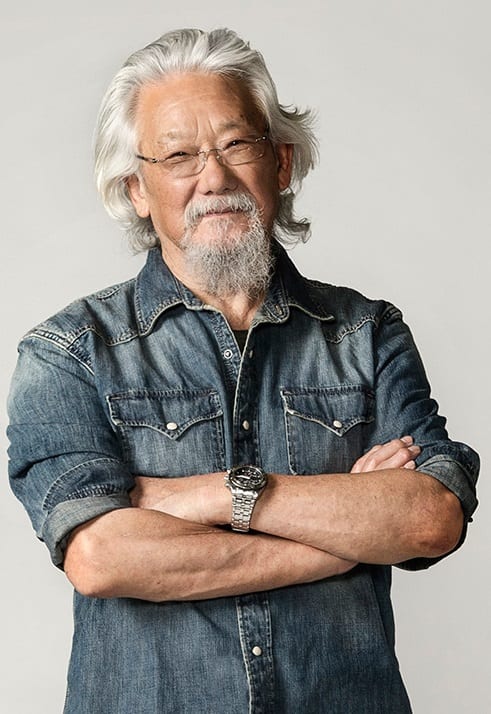“We lost something, a strong sense of community and connection to place”
Essay of David Suzuki for The Small Town in Me project
I believe elders play a very important role of reminding people what the world was like when they were young. As the eminent fisheries biologist, Daniel Pauly, warns us, by failing to listen to elders, we are subject to constantly “shifting baselines”, that the present state comes to be assumed as normal. He was speaking of fish and other wild creatures, but it applies to the way we live and move about.
“I believe elders play a very important role of reminding people what the world was like when they were young.”
Look at a map of Canada during the 1930s and ‘40s and you will see that it is full of dots connoting towns and villages that no longer exist. Those communities of 200 to 2,000 were where most Canadians lived before the great exodus to cities. They were relatively self-sufficient, places where farmers and others in the surrounding countryside could gather on weekends to find hardware, food, barbers, theatres, doctors and dentists. In fact, that’s how most of humanity lived after the Agricultural Revolution ten thousand years ago when we left nomadic ways to settle down in villages.
Of course, big cities like Toronto, Montreal and Vancouver, provide amenities not possible in towns, things like museums, zoos and aquaria, and greater variety in food and entertainment. But we also lost something, a strong sense of community and connection to place.
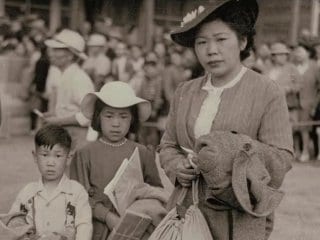
“We ended up in Leamington in southern Ontario.”
After World War II, my family was expelled from British Columbia where we had been incarcerated in a remote village in the Rocky Mountains for the duration of the war, so we ended up in Leamington in southern Ontario. This was a centre of farming in Essex county that boasted of being the home of Heinz ketchup.
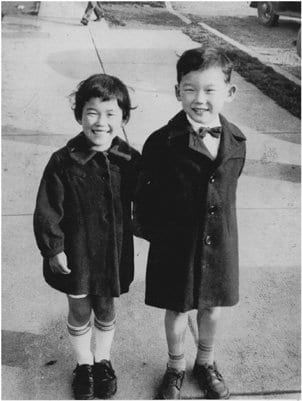
People also openly bragged that “no coloured person stays here beyond sunset” as a message to the African-Americans who came from nearby Detroit to fish on the long wharf at Seacliffe park. We were the first “coloured” family to move into Leamington and my parents were nervous. As a child, I experienced only minor episodes of overt racism, and my recollections of Leamington are filled with happy memories.
“When Dad drove through the countryside on weekends looking for places to fish, the windshield would be plastered with insects smashed while we were driving.”
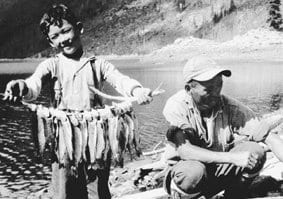
As a budding biologist, I found creeks, ditches and ponds were wonderful places to catch fish, frogs and turtles. I collected insects (my passion was beetles, actually) that were abundant in any empty lot or along country roads. When Dad drove through the countryside on weekends looking for places to fish, the windshield would be plastered with insects smashed while we were driving. At certain times of the year, the air would be filled with monarch butterflies and high above, huge numbers of birds would make their way south in fall. I would bike to Point Pelee whenever I could to slosh through the marshes or along the lakeshore looking for animal bones or fossils.
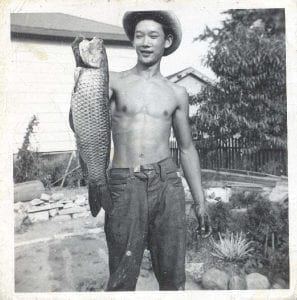
In late spring, the shores of Lake Erie exhibited an incredible natural event, the annual hatch of mayflies. The adults emerged from the water, basically flying gonads whose role was to find a mate, copulate, lay eggs and die. They massed in such numbers they obscured entire buildings, covered highways causing cars to skid on their bodies, and their carcasses piled up on beaches a meter deep. Fish went into a feeding frenzy and I remember casting out and pulling fish after fish out of the water. In less than a decade, that incredible biomass of mayflies disappeared victims of farmers’ zealous application of pesticides. Years after that, Lake Erie, this rich productive body of water I knew, was declared “dead” the victim of eutrophication from fertilizer runoff from farmer’s fields and phosphates from detergents to make clothes “sparkling white”.
“My memories of Leamington (1946 – 1950) provide a baseline to aim for as we work to heal the planet and restore its great riches.”
As we realize that many of our practices turned out to have unexpected consequences, we have become more aware of the effects on nature and more careful in what we do. The mayflies are slowly coming back in numbers and there is even a commercial fishery in Lake Erie. My memories of Leamington (1946 – 1950) provide a baseline to aim for as we work to heal the planet and restore its great riches.



